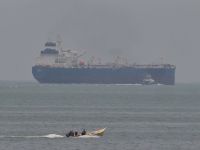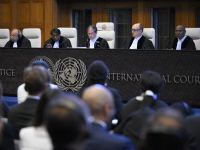Satellite channels in the Maghreb countries (North African Countries) lack the financial support that the Mashreq countries can provide to their own channels, which has led to the limited number of channels in the Maghreb region, according to Mohamed Aujjar, President of Achorouk Centre for Democracy, Information, and Human Rights.
Aujjar’s comments came during a seminar ‘Bridging the satellite space between the Maghreb and the Mashreq Countries of the Arab world’ held as part of the Arab Media Forum 2010. The seminar attempted to unravel the media scene in the Maghreb countries, and identify the obstacles to the dissemination of media content in the Mashreq region.
Aujjar added: “The expansion in the number of channels witnessed by the Mashreq countries is an expression of political diversity, or even a competition rather than democratic maturity. Mashreq channels are not giving enough space to reflect the Maghreb culture and accomplishments, at least as an Arab success case study. Channels are supposed to get countries closer, not increase the space and cause near-war situations such as with the recent Egyptian-Algerian football game.”
Held under the patronage of His Highness Sheikh Mohammed Bin Rashid Al Maktoum, Vice-President and Prime Minister of the UAE and Ruler of Dubai, AMF 2010 opened on 12 May at Atlantis-The Palm. Themed ‘Shifting Mediascape: Inspiring Content…Expanding Reach’, the event has brought together more than 2,000 media personalities and experts from Arab countries and across the world.
Moderated by Waseela Awlamy, Presenter, Al-Jazeera speakers at the seminar included Mahmoud Shamaam, Journalist, Libya; Mohammed Awjar, President of Shurouq Media and Human Rights Center, Morocco; Fahmi Howidy, Egyptian Writer Az Il Din Mayhooby, Minister of Media, Algeria.
Mahmoud Shammam said: “My understanding of the media is a first draft of history, but the reality is different as the media focuses mostly on the Mashreq. The satellite channels in general have a drawback of shifting people from reading to simply watching, but the current scenario is not helping as the media is not offering enough intellectual value to the viewers at large, let alone thoughts and researches from thinkers and scientists in the Maghreb.”
He added: “Channels in the Mashreq countries are not independent; they rather represent their governments than voicing the opinion of the opposition. However, we need the support of the Mashreq channels to bridge the cultural gap between the Mashreq and Maghreb regions. Out of a total of 638 satellite channels in the Arab world, only about 30 belong to the Maghreb countries.”
According to a report issued by the Arab States Broadcasting Union about the Arabic satellite channels in 2009, the share of the Maghreb countries less qualitative and quantitative. Out of the total Arabic satellite channels broadcasting to the region, the number of channels broadcasting from Northwest Africa remains only 30, representing only five per cent of the total TV channels in Arabic. This raises a key question as the region’s population is estimated to be 85 million or 27 per cent of the total Arab population. The same trend is noticed in print and online media that have witnessed an accelerated growth in the Arab world while in the Maghreb countries it continues to remain relatively slow.
Shammam added: “Our media overlooks vital social issues such as corruption and women’s rights; instead women are only portrayed on television via shallow soap operas and musical shows that reflect them as a product.”
Fahmi Howidy said: “The political situation plays an important role in media. The negative current situation gets the worse out of everybody. For channels to expand to the Maghreb countries support is required, which was not the case when the offices of Al Jazeera in Algeria and several other offices in Morocco were shut down due to the political environment.”
He added: “The way media handled the situation between Egypt and Algeria during the latest football game is considered a crime…this is not history.”
With regard to the local contribution to the media in Maghreb countries, there exists an acute shortage of media content in all aspects, although the cultural diversity distinguishes the region’s five countries – Libya, Tunisia, Algeria, Morocco and Mauritania – from others. This is despite cultural and intellectual wealth which makes the region a consumer of imported media content while Mashreq content reaches Maghreb abundantly and the presence of media professionals from Maghreb in the Arab world, the Maghreb is helpless to reach audiences in the Mashreq.
Ezzudin Mayhubi said: “The Mashreq culture reaches the Maghreb, but unfortunately not vice versa. I do admit the quality of television in Maghreb is not up to standard, but this is due to the political situation in the region and Maghreb countries would need support to improve this phenomenon.”
Topics discussed at the seminar included the forms of communication with the Mashreq countries; whether it is the dialect or the content that pose the obstacles; why some programmes in the Mashreq countries have succeeded in communicating with the Maghreb countries while it is not the same vice versa; the ownership, interests and operational structure of 30 satellite channels in the Maghreb countries, and whether these channels fulfill the needs and aspirations of the audience in the five Maghreb countries.
AMF 2010 has served as a crucial platform for insightful discussions on issues such as citizen journalism, sports media, the media in Asia, Arabic channels’ diffidence to expand into other languages, and the etiquette of debate on live TV.
Under the patronage of His Highness Sheikh Majid Bin Mohammed Bin Rashid Al Maktoum, Chairman of Dubai Culture and Arts Authority, the winners of the third edition of the Sheikh Majid Bin Mohammed Youth Media Awards received their prizes at a gala ceremony on the first day of the forum.
The Arab Media Forum 2010 will conclude on 13 May with His Highness Sheikh Mohammed Bin Rashid honouring the winners of Arab Journalism Awards, the region’s most coveted distinction for journalistic excellence.
Key sponsors for AMF 2010 include Dubai Media Incorporated (DMI), Arab Media Group (AMG), Nakheel, Dubai Department of Tourism and Commerce Marketing (DTCM) and Emirates airline.







